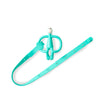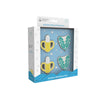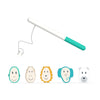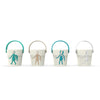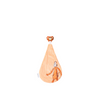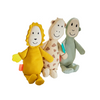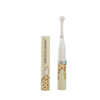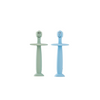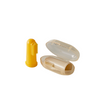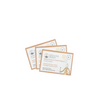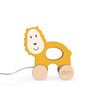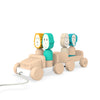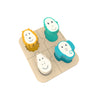When Do Babies Start Talking?
After a few months of vocalising and verbal experimentation, your baby's first words are likely to happen, from coos to growls to sing-song combinations of vowels and consonants. At around 8 months your baby is likely to begin stringinging "ma-ma" and "da-da" sounds together without actually understanding what they say. Yet, when those sounds begin translating into actual sentences, it's a developmental breakthrough that feels like magic!
When Will You Hear Baby's First Words?
The first "baby talk" is nonverbal, and is taking place soon after birth. Your baby grimaces, cries and squirms to express a range of physical and emotional needs, from fear and hunger to frustration and sensory overload.
Only as your baby speaks those wonderful first words differ widely from baby to baby. So if your baby fails any of the following milestones in speech growth, raise your questions with your paediatrician or family physician.
Baby Talk Milestones
- Baby talk at three months - Your baby is listening to your voice at 3 months, watching your face as you talk, and shifting to other voices, sounds, and music that can be heard throughout your house. A lot of infants prefer the voice of a woman over that of a man. Many also prefer voices and music they heard while they were still in the womb. Babies start "cooing" by the end of three months-a happy, gentle, repetitive, sing-song vocalisation.
- Baby talk at six months - Your baby starts babbling with different sounds at age 6 months. For example, your baby can say "ba-ba" or "da-da." Babies respond to their own names by the end of the sixth or seventh month, understand their native language and use their tone of voice to tell you they're happy or upset. Many excited parents perceive a "da-da" series of babbles as the first words of their baby — "daddy!" But babbling at this age is usually still made up of random syllables without real meaning or comprehension.
- Baby talk at 9 months - Infant speaking at 9 months. Babies will be able to understand certain simple words like "no" and "bye-bye" after 9 months. They will also begin to use a broader variety of consonant sounds and voice tones
- Baby talk at 12-18 months - By the end of 12 months, most babies say a few simple words like "mama" and "dadda" — and now know what they're talking about. They respond to your quick, one-step requests — or at least understand, if not obey — such as, "Please put that down."
- Baby talk at 18 months - At this age , babies say many simple words, and can point to people, things, and parts of the body that you name. They repeat words or sounds, like the last word in a sentence, that they hear you say. Yet also they leave word ends or beginnings off. They might say "daw" for "dog," or "noo-noo's" for "noodles," for example.
- Baby talk at 2 years. By age 2, babies string together a few words in short sentences of two to four words, such as "mommy bye-bye" or "me milk." They're learning that words mean more than "cup" objects — they also mean abstract ideas like "mine."
- Baby talk at 3 years. By the time your baby is 3 years old, his or her vocabulary is rapidly expanding and "make-believe" play spurs an understanding of symbolic and abstract language such as "now," feelings such as "sad," and spatial concepts such as "in."
Talking and Developmental Milestones
When your baby begins to talk, they will flaunt their budding language skills. Sure, you have no idea what she is saying, but in the end this gibberish will lead to real words. The chatter also offers you a snapshot into their cognitive growth, memorising and repeating sounds, taking time to think about what they need to say and learning how to use verbal and nonverbal acts to communicate with them.
Stages of Verbal Development in Babies
Here are some ways to help your baby's speech and language development:
- Engage in a conversation by talking to your baby
- Pause after you say something so that he has time to process your words and "respond"
- Use different tones and syllables when you talk so that he will try to imitate you and learn new sounds
- Explain your baby's babble to him. If he says "ma ma ba ba" while looking around, you might say, "Oh, are you looking for your bottle? Where did the bottle go?"
When to See a Doctor
Children develop talents at various times, note. As long as the conversation of your baby continues and she interacts with you and others, there is definitely no reason to worry. But if they cease or regress at some stage in their speech and language development, arrange an appointment with your pediatrician and a speech-language pathologist. It is also important to your local public school at any age — the sooner a child gets help for a speech or language problem, the better.







